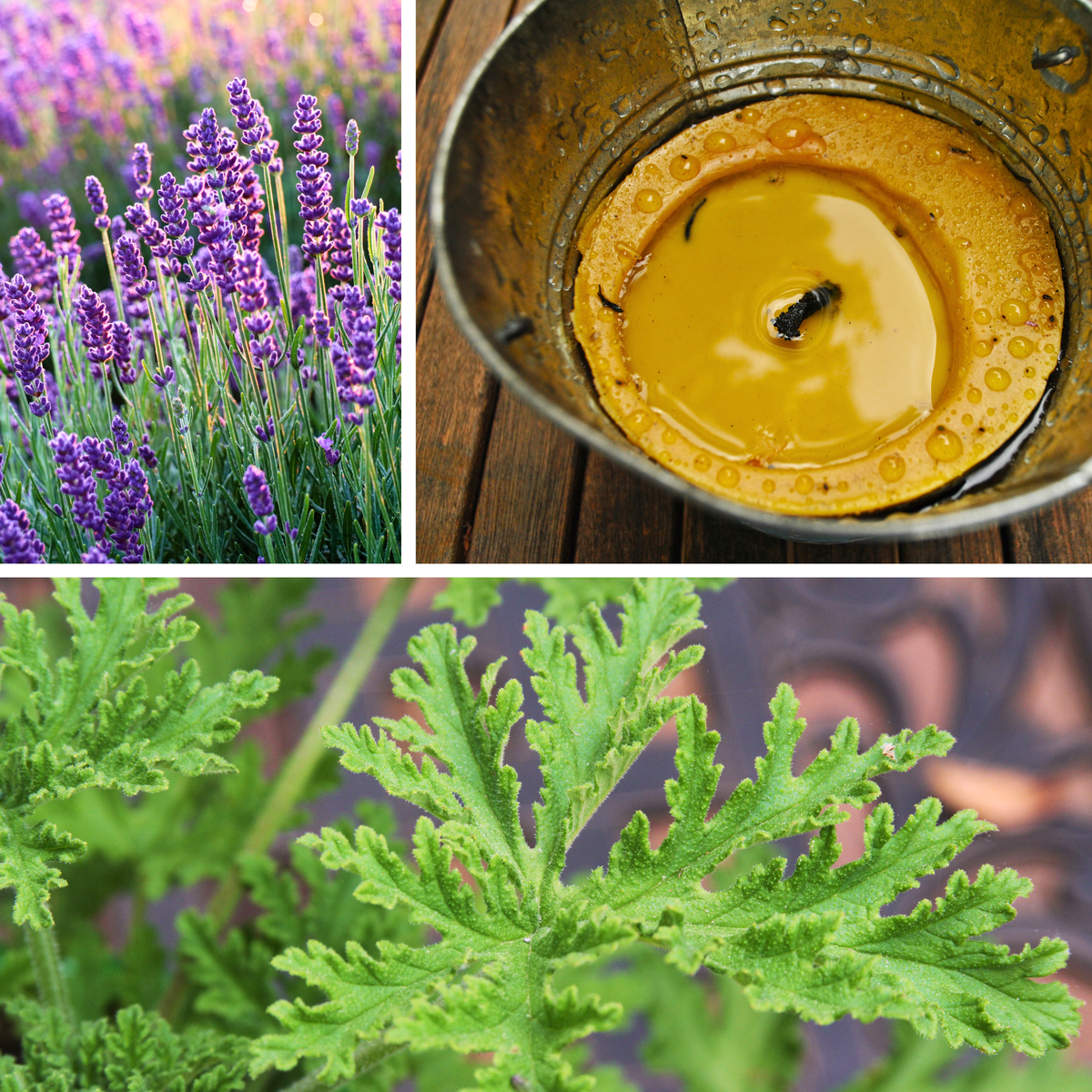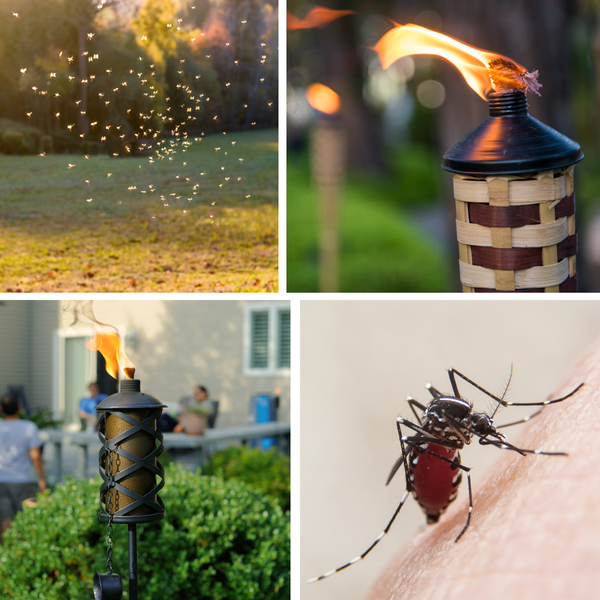Mosquitoes are more than just annoying pests; they can also be carriers of serious diseases. As such, finding ways to repel them is a topic of interest for many. One of the most effective methods is to use scents that mosquitoes find repulsive. But what smell do mosquitoes hate the most? This article dives into the scents that keep these pesky insects at bay.
Key Takeaways:
- Certain natural scents are highly effective at repelling mosquitoes.
- Lemon eucalyptus oil is one of the most effective mosquito repellent properties.
- Maintaining a mosquito-free environment involves more than just repellents; it includes eliminating breeding grounds like standing water.
The Power of Citronella Oil
Citronella oil is widely recognized for its mosquito-repelling abilities. Extracted from the lemongrass plant, this natural oil has a strong scent that is unappealing to mosquitoes. When used in candles or torches, the oil's smoke further helps to keep mosquitoes away. Citronella is a key ingredient in many store-bought repellents and is considered a safer alternative to DEET.
Lemon Eucalyptus Oil: A Natural Shield
Derived from the leaves of the lemon eucalyptus tree, lemon eucalyptus oil is another natural repellent that is highly effective against mosquitoes. The CDC has endorsed it as an effective mosquito repellent, and it is known for its long-lasting properties. When applied to the skin, it can deter mosquitoes for hours, making it a popular choice for those spending time outdoors.

Lavender: More Than Just a Pleasant Aroma
Lavender, a member of the mint family, is not only known for its calming properties but also for its ability to repel mosquitoes. The plant produces a scent that is soothing to humans but detested by mosquitoes. Planting lavender in your outdoor space or using the oil extracted from its crushed leaves can help keep these annoying pests at a distance.
Peppermint Oil: A Refreshing Repellent
Peppermint oil is another member of the mint family with mosquito repellent properties. Its strong scent is one of the most hated smells by mosquitoes. A few drops of peppermint oil mixed with a carrier oil can be applied to the skin or added to homemade bug sprays to deter mosquitoes and other insects.
The Role of Carbon Dioxide
Mosquitoes are attracted to carbon dioxide, which humans naturally exhale. This is why they are often drawn to us. However, certain scents can mask the carbon dioxide we produce, making it harder for mosquitoes to locate us. Using scents that repel mosquitoes can therefore be an effective way to reduce bites.

Tea Tree Oil: A Potent Mosquito Adversary
Tea tree oil, often celebrated for its antiseptic properties, is another essential oil that mosquitoes dislike intensely. Its strong scent is derived from the leaves of the Melaleuca alternifolia, a plant native to Australia. When applied to the skin or diffused through the air, tea tree oil can act as a formidable barrier against pesky mosquitoes. Its natural compounds are believed to interfere with mosquitoes' delicate sense of smell, making it difficult for them to locate their next meal—us!
Moreover, tea tree oil is a versatile addition to any natural bug spray. Unlike store-bought repellents that may contain harsh chemicals, a homemade concoction with tea tree oil can provide protection without the worry of highly toxic ingredients. For those who spend time in mosquito-prone areas, incorporating tea tree oil into their routine can offer further insight into the power of natural repellents. It's a simple, yet effective way to keep mosquitoes at bay while also caring for your skin.
Marigolds: Nature's Vibrant Defense
Did you know that the bright and cheerful marigold flowers do more than just beautify your garden? These vibrant blooms produce chemicals that are naturally unappealing to mosquitoes. Marigolds contain pyrethrum, an ingredient commonly found in many insect repellents, which makes them a natural and decorative way to keep mosquitoes at a distance. Planting marigolds around your home or in pots on your patio can create a colorful shield against these flying pests.
In addition to their mosquito-repelling properties, marigolds are also easy to grow and maintain, making them a favorite among gardeners who hate smells that attract mosquitoes. By integrating marigolds into your outdoor spaces, you not only add a splash of color but also enlist a natural ally in the fight against mosquitoes. This approach allows you to enjoy your time outdoors without the constant buzz of unwanted insect companions or the need to apply bug spray every few hours.
Garlic: An Unconventional Repellent
While not as commonly used as other essential oils, garlic has been noted for its mosquito-repelling abilities. The strong scent of garlic cloves can help keep mosquitoes at bay. Some people choose to consume garlic or apply it topically, but its smell can be quite potent and may not be suitable for all situations.

The Benefits of Lemon Balm
Lemon balm, another plant in the mint family, contains a compound namely linalool, which is known for its mosquito repellent properties. The plant's crushed leaves can be rubbed onto the skin for a natural repellent effect. Lemon balm is easy to grow and can be a pleasant addition to any garden or outdoor area.
Coconut Oil: A Surprising Deterrent
Coconut oil has been found to have mosquito repellent properties when mixed with other essential oils. Its fatty acids can disrupt the mosquito's ability to detect lactic acid, which is another compound that attracts mosquitoes. Using coconut oil as a base for homemade repellents can be an effective and skin-friendly option.
Protective Clothing: A Physical Barrier
In addition to using scents to repel mosquitoes, wearing protective clothing can provide a physical barrier against bites. Long sleeves, pants, and a mosquito net can be effective, especially in areas with high mosquito populations. Clothing can also be treated with repellents for an added benefit.
Eliminating Breeding Grounds
To keep mosquitoes away, it's crucial to eliminate their breeding grounds. Mosquitoes lay eggs in standing water, so removing any containers that can collect water is important. Regularly changing the water in bird baths and keeping gutters clean can also help reduce mosquito populations.

Summary
In the battle against mosquitoes, using scents they despise is a powerful strategy. From the well-known citronella oil to the surprising coconut oil, there are a variety of natural options available. By incorporating these scents into your mosquito defense plan, along with eliminating breeding grounds and using protective clothing, you can enjoy your time outdoors without the nuisance of mosquito bites.
FAQ Section
Q: Can I use essential oils directly on my skin to repel mosquitoes?
A: Essential oils should be diluted with a carrier oil before being applied to the skin to avoid irritation. Lemon eucalyptus oil, for example, can be mixed with coconut oil for a natural and effective mosquito repellent.
Q: Are there any plants I can grow to keep mosquitoes away?
A: Yes, plants like citronella, lavender, and lemon balm are known for their mosquito-repelling properties. Growing these in your garden or outdoor space can help deter mosquitoes.
Q: How often should I reapply natural mosquito repellents?
A: Natural mosquito repellents may need to be reapplied more frequently than synthetic ones. Generally, reapplication every two to three hours is recommended, but it can vary depending on the specific product and its concentration.










